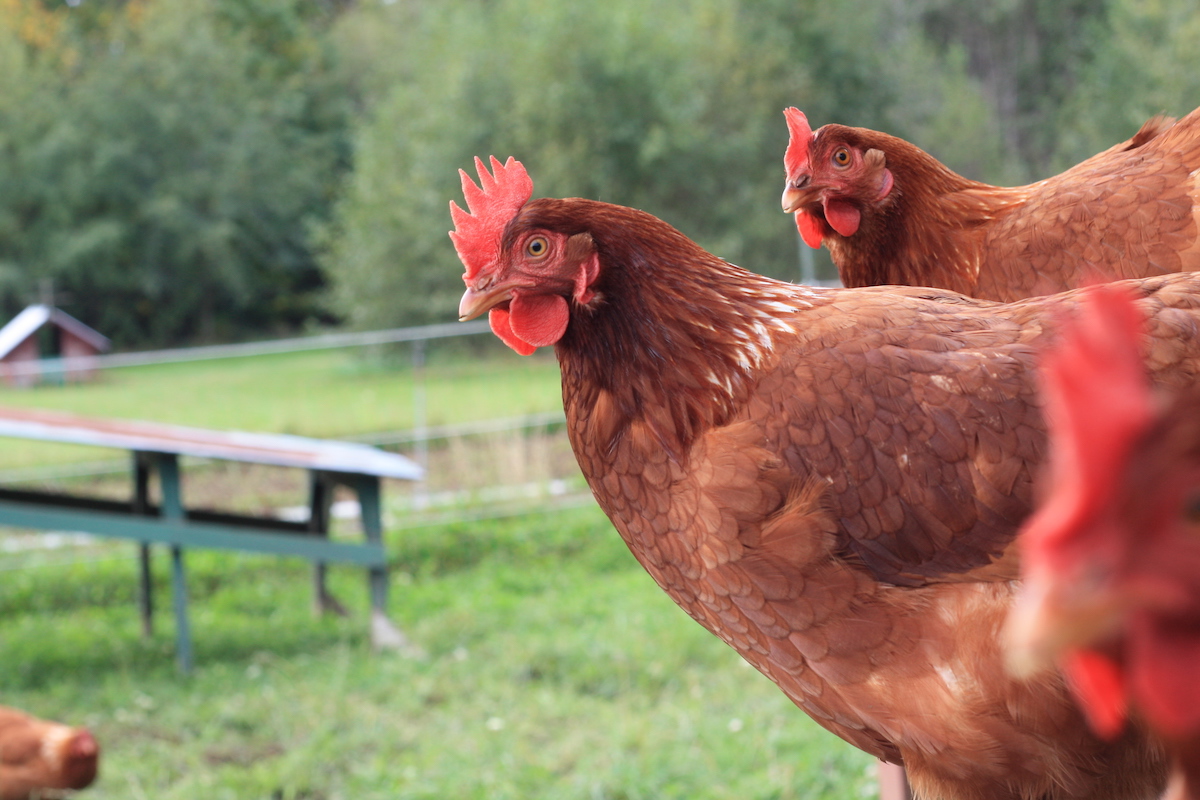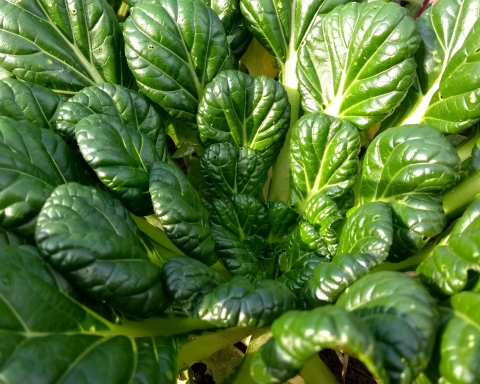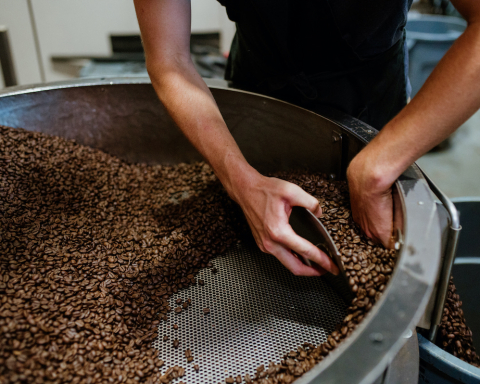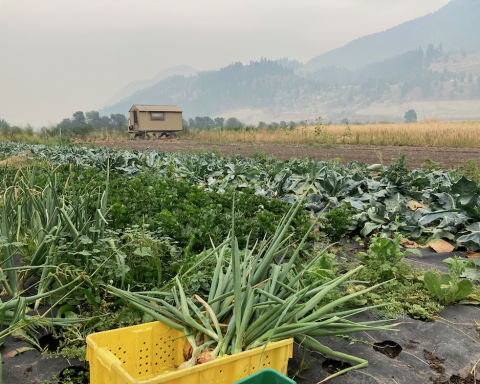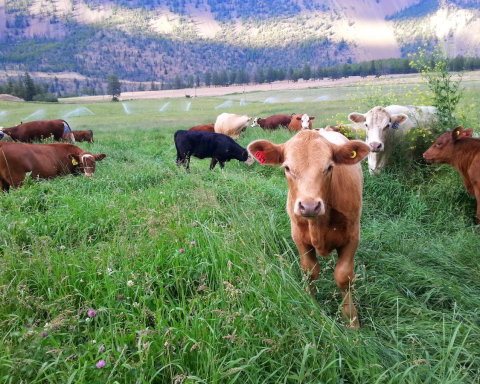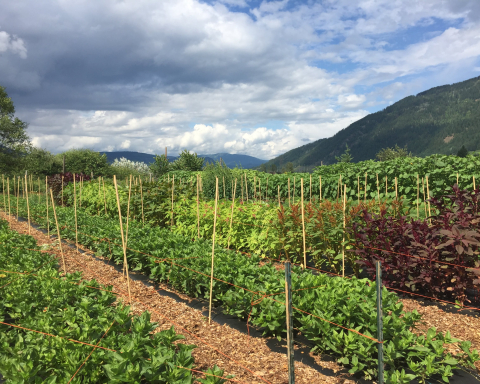By Emma Holmes
The BC Wildfire Service website has information on current wildfire activity, evacuation alerts and orders, wildfire preparedness information, and an interactive map, etc.
The Ministry of Agriculture, Food, and Fisheries (AFF) supports livestock relocation during emergencies. See website here for more information.
AFF supports Wildfire 2021 Emergency Feed Program that is meant to support commercial livestock businesses who due to wildfire activity cannot access their normal forage/feed supply.
Feed Considerations
The Organic Standard outlines the clauses pertaining to the use of non-organic feed during a catastrophic event in CGSB-32.310, 6.4.7:
“If organic feed is unobtainable as the result of a catastrophic event with a direct impact on the production unit (for example, fire, flood, or extraordinary weather conditions), non-organic feed may be used for a maximum of ten consecutive days (or up to 30% non-organic feed for up to 30 consecutive days), to ensure a balanced livestock ration. Non-organic feed from land in transition to organic production and free of prohibited substances shall be used in preference to non-organic feed.”
- When you move animals to a non-organic farm (in the event of an emergency), you can feed them complete non-organic feed for a 10-day period.
- After those 10 days, if you need to stay on that non-organic farm for a longer period, then you can feed the animals 30% non-organic feed (remainder must be organic) for 20 days.
- After that 20-day period, you can feed the animals 25% non-organic forage (remainder must be organic) if there is a documented forage shortage.
- Crown range or community pasture can be used without affecting the organic integrity provided that documentation confirms that the land has not been treated with prohibited substances for at least 36 months.
- Should a producer not be able to meet the above requirements, their animals will lose their organic status and will require a 1-year transition back to organic status. One caveat to this is that breeding stock can be fed non-organic feed and be transitioned back immediately to organic status once they begin eating organic feed again, but their nursing young and any offspring whose mother was fed non-organic feed in the last trimester will lose their organic status and will require 1-year transition period.
*BC has never experienced such widespread fires and feed shortages before. The Organic Standard was developed at a time when the above feed considerations for climatic events provided enough allowances for an organic operator to maintain their organic integrity. If an operator is at risk of losing their organic certification due to feed shortages, please keep the Organics Industry Specialist in the loop as they are working closely with the Executive Director of Organic BC to support producers in maintaining their organic status during evacuations and unprecedented feed shortages.
Treatment Considerations
If the organic livestock should require treatment, those will need to be worked out on a case-by-case basis with the certifying body.
Steps an Organic Livestock Producer Needs to Follow to Maintain Organic Status in the Event of an Evacuation
- Call operator’s certifying body in advance (if possible) for guidance and to talk through plans.
- Inform the Organics Industry Specialist that an organic operation is under evacuation alert. The Organics Industry Specialist can also call the certifying body on behalf of the producer if needed. Currently, the position is filled by Emma Holmes who can be reached at emma.holmes@gov.bc.ca or 250-241-1337.
- Ideally, organic livestock would be able to find an organic buddy farm. Organic BC has a search tool that allows you to search organic operations by sector and region: organicbc.org/findorganic. The Organics Industry Specialist can also help with this.
- The primary concern to organic integrity is how the organic livestock are managed (feeding and treatments) with feeding being the biggest concern.
Emma Homes is the Organic Industry Specialist at the Ministry of Agriculture.
Featured image: Chickens at UBC Farm. Credit: Hannah Lewis.


